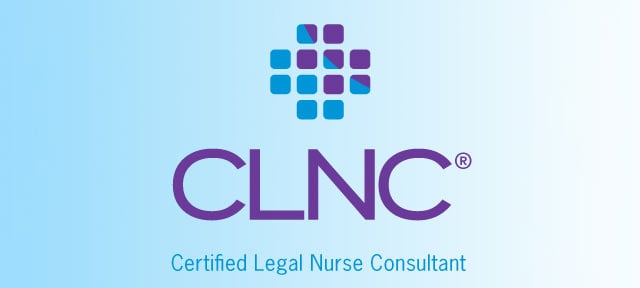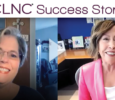I’ve previously blogged about the fact that potential employers are searching social media to discover what people have posted prior to hiring them (and in some cases after they’re on the payroll). Tom has discussed the fact that photos posted on the Internet may contain metadata that includes date, time and even a GPS location of where the photos were taken. We’ve also explained how Certified Legal Nurse Consultants can use deep-web search engines to locate information about an expert or party who is not generally available on the Internet. I’ve also talked about whether legal nurse consultants (or parties involved in a lawsuit) should be blogging or texting about legal cases. Even your cashless toll-pay tag and the information from the computer that runs your car’s motor can provide relevant information. Now it’s time to tie it all together and discuss the potential discoverability of all those postings a plaintiff or defendant has made to Twitter, Facebook, MySpace and other similar sites.
In a lawsuit, almost all communications concerning the suit or its subject matter made by a party to anyone other than their attorney (and in some cases their spouse) are potentially discoverable. These social media communications may be used as a statement against interest, evidence of wrongdoing or character evidence. In the old days, paper records in the custody of a party were the primary source of discovery, but today discovery extends to all sorts of electronic communication.
In any case where the information may be relevant to a plaintiff or defendant, the social media communications of the parties may be discoverable and as Joe Friday used to say, “can and will be used against them.” There is no reasonable expectation of privacy in information generally available to the public. There may be such an expectation for information posted to a “protected” group on Facebook or Twitter where only “Friends” or “Followers” may see the info – but this hasn’t been fully hashed out by the courts. Two famous cases used photos posted on Facebook and MySpace to aid in sentencing of defendants.
The savvy Certified Legal Nurse Consultant should recommend to all attorney-clients that communications or other information relevant to the suit (or likely to lead to the discovery of relevant information) be requested from relevant parties (plaintiff or defense) through interrogatories, requests for production and requests for admission. This would include:
- The email addresses of all email accounts (business and personal) used by a party before, during and after the period relevant to the lawsuit;
- Copies of any relevant email sent or received including the time(s) and date(s).
- The domain names of any websites (business and personal) owned or operated by a party before, during and after the period relevant to the lawsuit;
- Printouts or views of the relevant portions of those websites including the time(s) and date(s) any relevant portions were posted.
- Statistical data regarding visitors/views of such site(s).
- The user names and account information for any social networking sites that a party belonged to or interacted with (such as Facebook, MySpace, Twitter, etc.) before, during and after the period relevant to the lawsuit;
- Copies of any relevant communications posted, sent or received by that party on said site(s) including the time(s) and date(s) the relevant portions were posted.
- Lists of friends, contacts, etc. for such site(s).
- The domain names or address of any blogs owned, operated or contributed to by a party before, during and after the period relevant to the lawsuit regarding the subject matter of the lawsuit;
- Copies of any relevant communications posted by that party including the time(s) and date(s) the relevant portions were posted.
- Statistical data regarding visitors/views of such site(s), if owned by a party (if not owned by the party to the lawsuit, a subpoena may be necessary to obtain this information).
- The domain names of any blogs posted to, or comments posted to any blog or similar website(s), before, during and after the period relevant to the lawsuit;
- Copies of any relevant communications made by a party including the time(s) and date(s) the relevant portions were posted.
- Statistical data regarding visitors/views of such site(s) if owned by a party (if not owned by the party to the lawsuit, a subpoena may be necessary to obtain this information).
- Whether or not any information posted by a party was posted to a “password protected,” “by invitation only” or otherwise restricted website or portion thereof before, during and after the period relevant to the lawsuit;
- The attorney-client may request an in camera review of any communications to determine relevancy and possibly stipulate to a protective order covering such information, if necessary.
- The account names and telephone numbers of any cell phone or other telecommunications account used or belonging to a party before, during and after the period relevant to the lawsuit;
- Copies or transcripts of any text messages or other similar communications made by a party (including the time(s) and date(s) the relevant portions were posted) before, during and after the period relevant to the lawsuit.
- Billing records showing calling and texting for such account(s).
- Names of any web browsers used or belonging to a party before, during and after the period relevant to the lawsuit;
- Versions and installation or removal dates.
- Copies of the “cookie” files from such web browsers.
- Names and addresses for any Internet service provider (ISP) used by a party, before, during and after the period relevant to the lawsuit.
- User name(s) and account number(s) for such party.
An attorney may have to request copies of some of this data pulled from back-ups of the relevant computer systems and may need to request access to the computers of a party to obtain this information.
Finally, think about how you personally use social media. Anything and everything you post online, whether it’s a review of a product, a critique of someone or something, pictures of you, an email you send, a blog you comment on, etc., all are likely to be discoverable and may end up being used as evidence in cases where they are relevant.
If you use your social media wisely it shouldn’t be an issue – but as illustrated by the cases above, not everyone is likely to think before they post.
Success Is Inside!
P.S. Comment and share how you believe social media will impact lawsuits or share tips on how you protect yourself.
P.P.S. I’d like to share that LegalNurse.com will be sponsoring a Legal Nurse Consulting Intro Seminar at the Nursing Spectrum Career Fair on October 23, 2009. Call 713.942.2200 if you would like to join us.









I see non-certified legal nurse consultants post active cases on FB. I think this is dangerous and extremely unprofessional. I, myself, am increasingly conscious of my comments. Still, probably not careful enough. On the flip side, FB has been a great marketing tool for my practice.
I can see how Internet and social media research can be beneficial to a case when there is not a whole lot in the literature to support a medical malpractice case. For example, in the medical-cosmetic industry there is not a lot out there regarding SOC or state regulations for cases before 2000 and depending on the state afterwards. Internet research into social media may be where the CLNC® consultant and attorney-client can find admissions, evidence and insight into character.
Kaye, what is FB? I agree, it is a very good idea to always be professional on the Internet even with family and close friends.
On the topic of research, I have had two experiences where attorneys were at a standstill in researching a subject because they did not know which direction to take to find the information. These last several blogs have reinforced my research skills with tools that I can use and build my confidence even more that I have thoroughly covered a research subject.
It is not enough to research a medical topic such as diabetes, as CLNC® consultants we need to know how to research businesses, people and products. These are great helps, Vickie. Thanks.